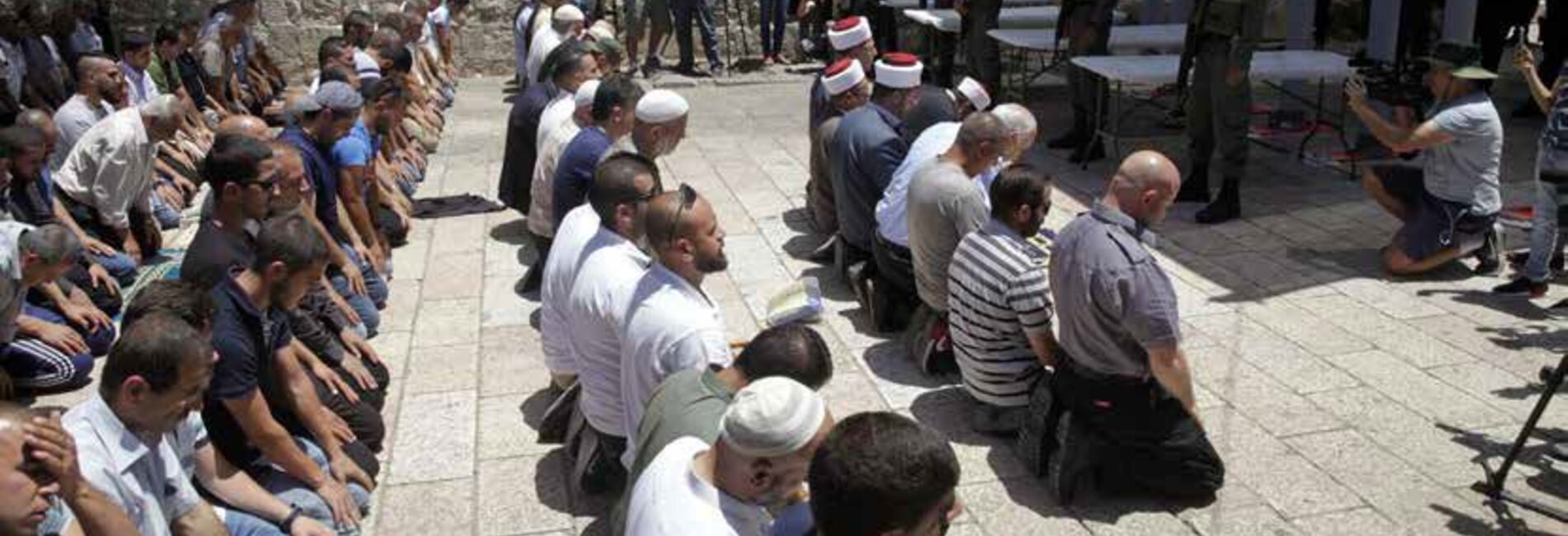Overview: July 2017
In his briefing to the UN Security Council on 25 July, the Special Coordinator for the Middle East Peace Process, Nikolay Mladenov, described the situation in the Gaza Strip as follows: “Two million people have been taken hostage in the political standoff between Fatah and Hamas. The humanitarian impact of the punishing measures taken against Gaza is appalling. In some parts of Gaza people have experienced electricity cuts of 36 hours. No electricity means no drinking water. Hospitals are struggling to survive. An environmental crisis is in the making.” The exacerbation of internal Palestinian divisions in recent months comes in the context of already fragile living conditions stemming from the longstanding Israeli blockade and recurrent hostilities.
This Humanitarian Bulletin highlights a recent appeal launched by humanitarian agencies in the occupied Palestinian territory (OPT) to fund a US$25 million package of urgent lifesaving interventions in the health, water and sanitation, and food security sectors to stabilize the situation in the Gaza Strip. Most of the proposed interventions were already part of the Humanitarian Response Plan (HRP), launched in December 2016, but could not be implemented due to lack of funding. Despite the gravity of the situation, only 24 per cent of the funds requested have been raised so far. A case featured in this Bulletin illustrates the tragic results of delays by the West Bank-based Ministry of Health in processing requests for the referral of patients for treatment outside Gaza. Hospitals in Gaza are already struggling to function due to the impact of power shortages.
There was a worrying rise in violence and tension in the West Bank during July. On 14 July, three Palestinian citizens of Israel shot and killed two Israeli policemen at the entrance to the Haram Ash Sharif/Temple Mount compound in East Jerusalem, and were subsequently killed in an exchange of fire. Citing the need to prevent similar incidents, the Israeli authorities installed metal detectors at the compound’s gates. This measure was rejected by the Muslim Waqf and Jordan, triggering protests and clashes between Palestinians and Israeli forces in which five Palestinians were killed and more than 1,000 injured. In connection to these events, on 19 July, a Palestinian youth stabbed to death three Israelis inside their home in the settlement of Halamish (Ramallah). Another four Palestinians were killed during July over the course of search and arrest operations or for alleged attacks. Tensions declined towards the end of the month following an Israeli decision to remove the metal detectors.
Prior to these events, during the Muslim month of Ramadan (27 May-26 June), the Israeli authorities eased access restrictions into East Jerusalem from the rest of the West Bank for the traditional Friday prayers. As explained in this Bulletin, access arrangements were challenging for vulnerable groups, particularly at checkpoints. Nevertheless, the easing of restrictions allowed an increased number of West Bank Palestinians to reach East Jerusalem during this period, although residents of Gaza remained largely banned.
Tension and violence in the West Bank in recent years have been exacerbated by the establishment and expansion of settlements, and related policies and practices. In July, the Israeli authorities advanced plans for the construction of some 1,700 housing units in occupied East Jerusalem; these included plans for the establishment of four new settlement compounds in the Palestinian neighborhood of Sheikh Jarrah. Subject to legal proceedings, these plans may result in the eviction of five Palestinian families and the demolition of their homes.
This Humanitarian Bulletin addresses the rise in settler violence during the first half of 2017 following three consecutive years of decline, which can be attributed at least partially to preventive measures adopted by the Israeli authorities. For many years, settler violence and gaps in law enforcement have undermined the physical security and agricultural livelihoods of tens of thousands of Palestinians, generating the need for assistance and protection by humanitarian actors.
During July, Israel and the Palestinian Authority (PA) signed two important agreements to improve water and electricity supplies to parts of the OPT: one agreement provides for the establishment of the first Palestinian-owned electricity station in the West Bank (Jenin); the other covers increased quantities of water purchased by the PA from Israel for supply to the West Bank and Gaza Strip.
Closing his briefing to the Security Council, Special Coordinator Mladenov emphasized that “the events that we have witnessed over the past weeks in Jerusalem are a reminder of how easy it is to reach the precipice of a dangerous escalation”. In regard to the Gaza Strip he stressed that “whatever the political differences between the Palestinian factions, it is not the people of Gaza who should be paying the price”.










